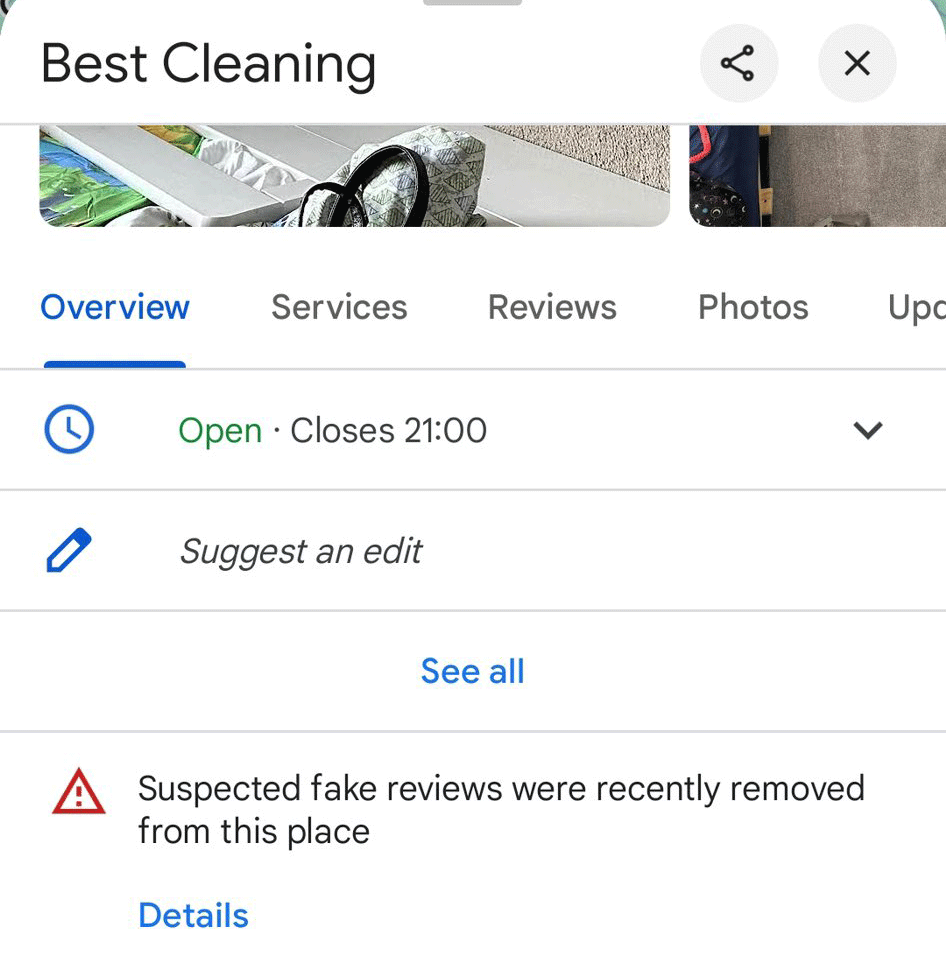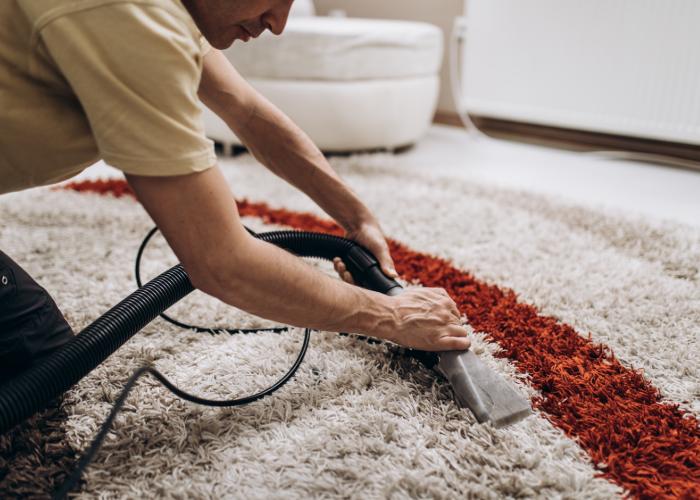
Combatting Fake Reviews: Google’s 2025 Business Profile Changes Explained
BlogGoogle’s New Business Profile Restrictions: Fake Reviews (And Why We’re All Gonna Be Okay) Let’s cut to the chase: fake reviews are the internet’s version of a bad toupee—obvious, awkward, and no one’s fooled. But here’s the kicker—Google’s finally tightening the screws on them. If you’re a business owner sweating over these new restrictions, take a deep breath. We’ve got your back. At Sitelinx Organic SEO Agency in Los Angeles, we’ve been knee-deep in Local SEO and Google Business Profile drama for years. Trust us, this isn’t the apocalypse—it’s an upgrade. So, why should you care? Because fake reviews aren’t just annoying; they’re toxic. They mess with your credibility, tank your rankings, and make customers side-eye your business like it’s a suspicious leftovers container. But hey, let’s not panic. Let’s strategize. Why Fake Reviews Are Everyone’s Problem (Yes, Even Yours) First off, let’s get real: fake reviews aren’t just a “big business” issue. Whether you’re a cozy coffee shop or a WordPress wizard offering SEO services, your Google Business reviews are your digital handshake. Google’s new restrictions? They’re like a bouncer at the club, kicking out the posers so the real stars can shine. Here’s what’s changing: Stricter verification: Google’s cracking down on reviews from suspicious accounts (read: profiles created yesterday with zero history). AI-powered detection: Algorithms now hunt for patterns like repetitive language or sudden review spikes. Faster removals: Flagged reviews get yanked quicker, but you still need to stay vigilant. Fun fact: A recent client of ours (a boutique bakery) had a competitor flood their profile with one-star “reviews” from accounts that only existed to trash them. Took us 48 hours to clean it up—and boost their rankings. Moral of the story? Fake reviews are a pain, but fixable. How to Adapt Without Losing Your Mind (or Your Rankings) Okay, let’s talk solutions. Google’s playing hardball, but we’re here to make sure your business doesn’t strike out. Step 1: Audit Your Existing Reviews Grab a coffee and comb through your Google Business reviews. Look for: Generic language (“Great service!”, “Terrible experience!”) with no specifics. Multiple reviews posted in a short timeframe. Accounts with no profile photos or activity. Pro tip: Use tools like ReviewTrackers or just hire an SEO specialist (hi, that’s us) to handle the dirty work. Step 2: Encourage Real Reviews Like Your Business Depends on It (Because It Does) The best defense against fake reviews? A flood of genuine ones. Here’s how: Ask politely: Add a review link to email signatures, receipts, or your website. Make it easy: Use QR codes on tables, counters, or invoices. Incentivize (ethically): Offer a small discount or entry into a giveaway—after they leave a review. FYI: Google’s guidelines forbid offering incentives for positive reviews, so keep it neutral. Why Local SEO Is Your New Best Friend Let’s get nerdy for a sec. Local SEO isn’t just about keywords—it’s about building trust. Google’s algorithm now prioritizes businesses with: Consistent NAP (Name, Address, Phone) across directories. High-quality photos and updated hours. Legit reviews that reflect real customer experiences. At Sitelinx, we’ve seen businesses jump 3+ spots in local rankings just by cleaning up their profiles and optimizing for these factors. And guess what? It’s cheaper than Google Ads. When to Call Reinforcements (Hint: We’re Really Good at This) Look, we get it. Between website management, technical SEO services, and pretending to understand TikTok trends, you’ve got enough on your plate. That’s where an SEO agency like ours comes in. Here’s what the best SEO companies for small business can do for you: Monitor reviews 24/7: We’ll flag fakes faster than you can say “algorithm update.” Optimize your WordPress SEO: Because nobody wants a slow, clunky site in 2024. Fix technical nightmares: Broken links? Mobile-unfriendly design? Consider it handled. Rhetorical question: Why stress over Google’s ever-changing rules when you could be sipping margaritas while we do the heavy lifting? 3 Burning Questions About Fake Reviews (Answered Without the Jargon) “How do I prove a review is fake?” Look for vagueness, duplicate content, or a reviewer with no history. Screenshot everything and report it via Google’s dashboard. “Will Google penalize my business if competitors leave fake reviews?” Only if you’re the one posting them. Google’s smarter now—they’ll target the culprit, not the victim. “Can I just delete bad reviews?” Only if they violate policies (e.g., hate speech, spam). Otherwise, respond professionally and fix the issue. The Bottom Line: Play the Long Game Google’s new restrictions aren’t about making your life harder—they’re about fairness. Fake reviews cheat everyone: businesses, customers, even Google’s algorithm. By focusing on authentic engagement, Local SEO, and a rock-solid online presence, you’ll not only survive but thrive. And hey, if you’re feeling overwhelmed, remember Sitelinx Organic SEO Agency exists. We’re a Los Angeles-based team of SEO nerds who live for this stuff. From WordPress SEO services to reputation management, we’ve got your back. Final thought: Fake reviews are like glitter—annoying, persistent, but not impossible to clean up. Let’s grab a virtual broom and get to work. :)** Need a hand? Contact Sitelinx Organic SEO Agency for a free audit. Because life’s too short for fake reviews and mediocre rankings.

Unlocking SEO Success: Attract More Clients to Your Cleaning Business in 2025
BlogHow to Leverage SEO to Get Clients for a Cleaning Business (Without Losing Your Sanity) Let’s be real: running a cleaning business is exhausting. You’re juggling schedules, scrubbing floors, and somehow still finding rogue glitter from that kids’ birthday party three months ago. But here’s the kicker—what if you could attract clients while you sleep? No, this isn’t a late-night infomercial. It’s called SEO, and it’s the secret sauce to getting your cleaning business noticed online. At Sitelinx Organic SEO Agency in Los Angeles, we’ve helped dozens of cleaning companies go from “Who even are you?” to “How soon can you start?” And guess what? We’re sharing all the gritty details below. Why SEO Matters for Cleaning Businesses (Spoiler: It’s Not Just for Tech Nerds) SEO isn’t just jargon for people who own 12 monitors and drink kale smoothies. It’s how you show up when someone in your area types “best cleaning service near me” into Google. Think of it as your digital storefront—except instead of mopping, you’re using keywords, reviews, and a sprinkle of strategy. Here’s the deal: 90% of searches happen on Google—if you’re not there, you’re invisible. Local SEO is your golden ticket. Nobody’s hiring a cleaner from another state (unless they’re really committed to that marble floor). Google Business reviews? They’re the modern version of word-of-mouth referrals. Local SEO: Your Secret Weapon for Dominating the Neighborhood Let’s start with the big one: Local SEO. This is how you make sure Mrs. Johnson down the street finds you when her golden retriever redecorates the living room (again). 1. Claim Your Google Business Profile (Or Kiss Leads Goodbye) Your Google Business Profile (GBP) is like a digital billboard. If it’s unclaimed or half-filled, you’re basically telling customers, “We might exist? Maybe?” Here’s how to fix it: Complete every section: Hours, photos, services—even that quirky “About” blurb. Categorize yourself correctly: “Cleaning service” ≠ “Janitorial service.” Google’s picky like that. Encourage reviews: A 5-star rating isn’t just for ego boosts. Google ranks businesses with more reviews higher. Pro tip: Offer a discount for honest feedback. At Sitelinx, we’ve seen cleaning companies in LA double their leads just by optimizing their GBP. FYI—it’s free. So why wouldn’t you do this? 2. Keywords: The Glue That Holds Your SEO Strategy Together You don’t need to stuff keywords like confetti (Google hates that). Instead, focus on terms your ideal clients actually use. For example: Keyword Monthly Searches Why It Works “House cleaning services” 22,000 Broad, high-intent “Eco-friendly cleaning LA” 1,200 Targets local, niche audiences “Move-out cleaning” 8,500 Perfect for renters or realtors Work these into your website, blog posts, and meta descriptions. But keep it natural—no one wants to read, “We clean clean clean your clean house cleanly.” Your Website: Where First Impressions Go to Make or Break You If your website looks like it’s straight out of 2005 (think Comic Sans and flashing banners), even the best SEO won’t save you. Here’s how to build a site that converts: 1. WordPress: The MVP of DIY Websites WordPress isn’t just for bloggers. It’s flexible, SEO-friendly, and lets you add plugins like Yoast SEO to optimize content on the fly. Plus, it’s cheaper than hiring a developer to code a site from scratch. 2. Speed Matters (No One Has Time for Slow Load Times) A slow site is like a cleaner who shows up two hours late—annoying and unprofessional. Use tools like Google PageSpeed Insights to fix issues. 3. Mobile-Friendly or Bust 60% of searches happen on phones. If your site isn’t responsive, you’re basically turning away half your clients. Content Marketing: Because “We Clean Stuff” Isn’t Enough Blogging might sound boring, but it’s how you answer questions like, “How often should I deep-clean my carpets?” or “What’s the difference between green and regular cleaning products?” Write guides: “10 Tips for Keeping Your Office Germ-Free” Share client stories: “How We Helped a LA Restaurant Pass Health Inspections” Use videos: Show before/after transformations (dirty oven to sparkling, anyone?). When to Call in the Pros (Hint: It’s Not Just When You’re Overwhelmed) Look, we get it—SEO can feel like learning Klingon. If you’d rather focus on actual cleaning than meta tags, partner with an SEO agency. At Sitelinx Organic SEO Agency, we’ve got SEO specialists who live and breathe this stuff. From technical audits to content strategies, we handle the heavy lifting so you can handle the Windex. 4 Burning Questions About SEO for Cleaning Businesses 1. “How long until SEO works?” SEO isn’t a microwave meal—it’s a slow cooker. Expect 4–6 months to see traction. But once it kicks in, the leads keep coming. 2. “Should I DIY SEO or hire an SEO company?” DIY if you’ve got time to learn. Hire a best SEO company (like, ahem, Sitelinx) if you want results faster and hate spreadsheet-induced headaches. 3. “Do Google reviews really matter?” Absolutely. They boost local rankings and build trust. Respond to every review (yes, even the grumpy ones). 4. “What’s the #1 SEO mistake cleaning businesses make?” Ignoring local keywords. If you’re not targeting “Los Angeles cleaning services,” you’re missing your neighbors. Ready to Stop Scrubbing and Start Ranking? SEO isn’t magic—it’s just smart marketing. Optimize your Google profile, create a killer website, and maybe toss in a blog post about “Why Your Janitor Deserves a Raise.” And if you’re in LA and want to skip the trial-and-error phase, ping us at Sitelinx Organic SEO Agency. We’ll handle the algorithms; you handle the air fresheners. Now go forth and conquer Google. (And maybe invest in a good stain remover while you’re at it.)
